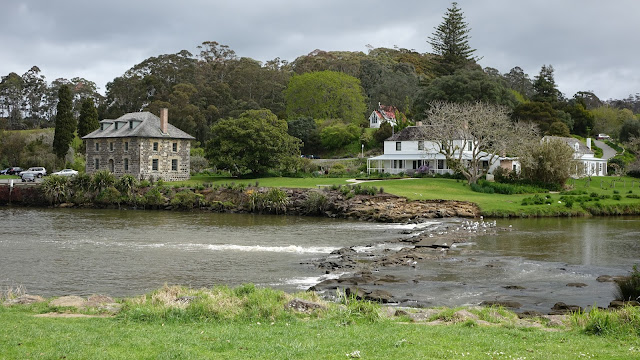The
English navigator Captain James Cook first sighted the land of New Zealand on 6
October 1769, and landed at Poverty Bay two days later. He drew detailed and
accurate maps of the country, and wrote about the Māori people.
Nestled
next to Poverty Bay is the city of Gisborne where Susan and I traveled on
assignment last week to cover an event sponsored by the Te Ha 1769 Sestercentennial
Trust and the Tairawhiti Interfaith Groups.
“Te
Ha” means “the breath of life.”
On Gisborne’s
Waikanae Beach early Saturday morning, these two groups marked the beginning of
a Week of Prayer for World Peace, which also launched four years of
celebrations, culminating in 2019 when the 250th anniversary of
Captain Cook’s landing will occur.
Participants
of Saturday’s activities included members of The Church of Jesus Christ of
Latter-day Saints, Ringatu, Presbyterian, Buddhist, Muslim, Filipino, Baha’i,
and Anglican groups.
We
enjoyed this assignment very much and submitted this article for Mormon Newsroom–Pacific
(Watch for the fourth article on the main carousel, Gisborne Interfaith Group Celebrates Maori, European, and Polynesian
Beginnings):
During
our trip, we learned once again how beautiful New Zealand is. We were
particularly excited to visit the town of Taupo and the huge, gorgeous Lake
Taupo on the shores of which the town is located.
Susan
and I were amazed by Huka Falls on the Waikato River that flows out of Lake Taupo.
The river and the falls have a lovely turquoise color, very much like that of
Utah’s Bear Lake. We were amazed to learn that the thundering falls could fill
five Olympic swimming pools in one minute. That’s impressive!
Nearby,
we also walked through a spectacular thermal plane called Craters of the Moon.
This geologic area is somewhat reminiscent of Yellowstone National Park,
covered with hot pots, thermal steam vents, rising plumes of steam, and pools
of scalding water. Because this area is quite large, the New Zealand Geothermal
Association has developed extensive energy facilities that provide power for
residents in many locations.
Of
course, I also had to visit the local fish hatchery, when I found out there was
one, just 30 minutes south of Taupo near the town of Turangi. The fish there
were beautifully colored Rainbow Trout, and they were huge!
During
the week, Susan was also able to finish her research and write a nice story about
the genealogical efforts over many years of a local Latter-day Saint from
Tahiti, Raymond Maire. Raymond takes care of several buildings in the Auckland,
New Zealand area. To find the story, use this link:
I end
this week with thoughts inspired by messages from Elder Kevin W. Pearson and
Elder S. Gifford Nielsen of the Pacific Area Presidency.
After
they returned from approximately two weeks in Salt Lake City for General
Conference activities, Elders Pearson and Nielsen shared their thoughts and
testimonies of time spent with the First Presidency, the Quorum of the Twelve
Apostles, and other members of the Seventy. In Monday morning’s Devotional and
then again in Monday’s Home Evening for senior missionaries, the Spirit was
strong and the sentiments poignant.
Really,
the testimonies borne were sacred, and they brought a reconfirmation of the
gospel’s efficacy in each of our lives. We learned about the genuine concern of
our Heavenly Father and His Son, The Lord Jesus Christ—for each of us, every
day, in all of our efforts and struggles. I remembered, once more, why Susan
and I are serving this mission; why The Church of Jesus Christ of Latter-day
Saints exists on the earth today; why we have living prophets and apostles, who
are literally called by God; and why families being
raised in love and harmony matter so much.
Joseph
really did see and experience what he said he saw in the Sacred Grove. This I
know, and am so grateful for. Until next time . . . may the Lord be with each
of you, I pray,
Elder
Barry Preator


















